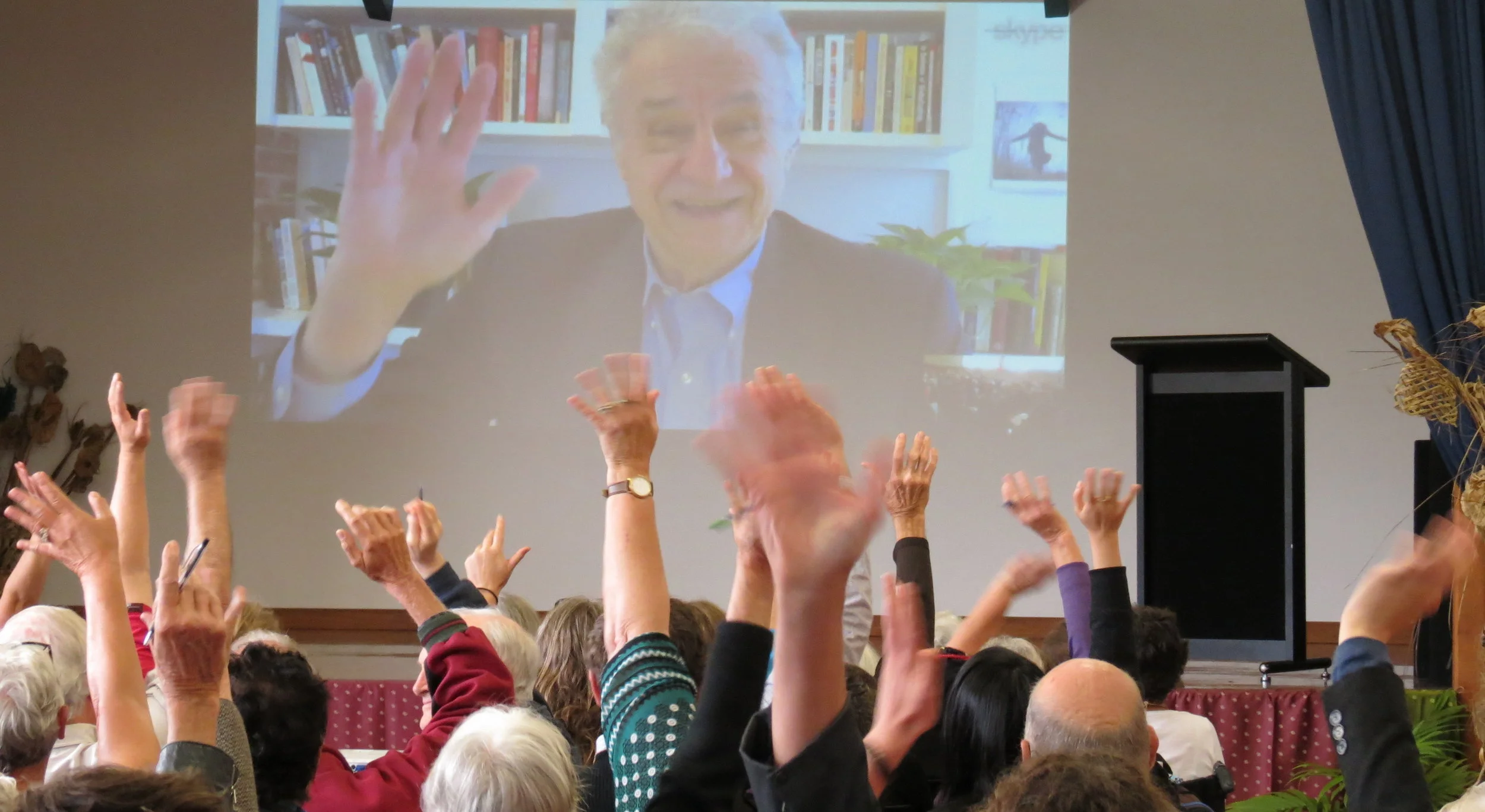New outlook: Changing the way we look at our economy - Lyttelton's Living Economies Expo
- held between March 31 to April 2
(caption for the above picture: One of the forums at the Expo; picture courtesy Gen de Spa)
Those who attended the recent Living Economies Expo came away energised and inspired to make change.
The purpose of the event was to seed systemic change. The realisation that our systems are not working is fairly widespread: see the increasing coverage in our media of topics such as climate change, water quality, housing shortages, a failing health system, the growing divide between rich and poor, decrease in the diversity of species, questionable political leadership worldwide and of course the connector of all these issues – our current highly dysfunctional monetary system.
Professor Gar Alperovitz of the The Next System Project skyped in to open the discussion, to set the parameters. Dr Niki Harré the psychology researcher and writer brought in the concept of the Infinite Game, the play of which is required to move us towards a sustainable world. A whole range of speakers and panellists both national and international along with the exploring of participants’ knowledge and wisdom via the use of Open Space filled the three days.
The event itself was an attempt at modelling how the next system might work. It was a co-created event, the intent was put out by the Living Economies Trust and then talking via regular newsletters to an increasing number of interested people, ideas were welcomed by all who wanted to explore these matters, so the event morphed as the planning unfolded.
Some strong characteristics of the Living Economies Expo included…it was aiming to be a zero waste event (including the unveiling of two portable composting toilets);
It was hosted by the Lyttelton Harbour community: the school, the local timebank and local businesses and Council. A lot of the food was gifted by groups like Koukourarata marae and Cultivate.
There was a variety of ways to pay the registration fee. One included paying partly in dollars and partly in doing work for the event.
Stephanie Rearick from Madison County US introduced people to the concept of Mutual Aid Networks. As a result MANA (Mutual Aid Network Aotearoa) is starting to be formed.
The evidence brought forward at the Living Economies Expo and highlighted by international commentator Dr Nafeez Ahmed who was skyped in at the end was that yes, we need change at a government/national level and regionally, but where the significant change will happen is at a community level; getting to know our communities, solving issues collectively, using tools such as timebanks, savings pools, co-operatives, sharing stuff like transport and equipment - all are important in building a strong community that is closely interconnected and hence resilient in the face of what could be a catastrophic future.
- Margaret Jefferies, member of the Living Economies Trust Board and chairperson of Project Lyttelton



